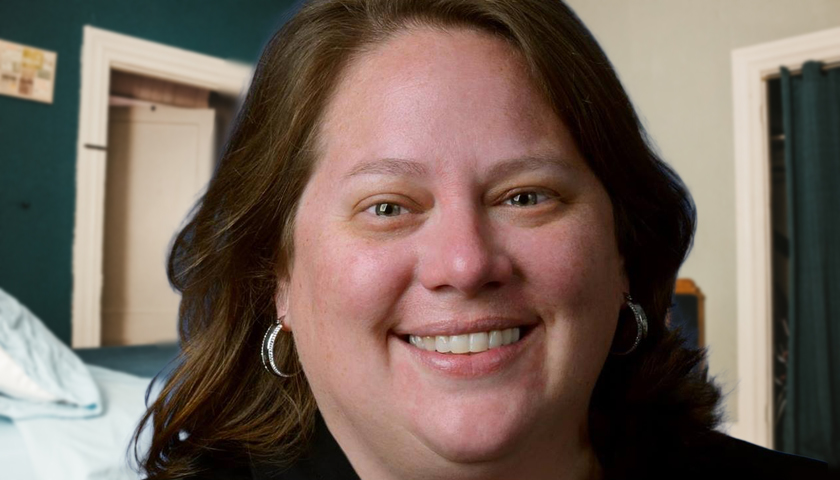by Scott McClallen
Legislation in Lansing aims to dictate whether local governments can ban Michiganders from generating income via short-term rentals (STR).
The Michigan Municipal League (MML) opposes the bill backed by GOP lawmakers, Senate Bill 446 and House Bill 4722, which aim to stop governments from banning STRs. A vote is expected within two weeks.
Each side says the other wants governmental overreach. MML says Lansing outright prohibiting local government from banning STRs statewide is advocating for “big government,” while the GOP says local government telling residents how they can and can’t use their home is also government overreach.
Rep. Sarah Lightner, R-Springport, sponsored HB 4722.
“People’s private property rights have been threatened by the blanket bans some communities have taken against short-term rentals,” Lightner previously told The Center Square. “Some families make ends meet by renting their homes to others for short periods of time. My goal is to create consistency in the way all short-term rentals are treated across our state – so families can invest confidently in a home without the fear that their ability to rent out that home if they so chose would be unreasonably compromised.”
MML says they know of no cities banning STRs. However, Jarrett Skorup, director of marketing and communications for The Mackinac Center for Public Policy, told The Center Square differently, citing his research.
Detroit banned STRs in residential areas until residents pushed back. St. Clair Shores bans STRs and even prosecuted one homeowner for renting out his home.
“Ann Arbor, Holland, Mackinaw City, Spring Lake and others ban short-term rentals in certain zones,” Skorup wrote. “Grand Haven and South Haven both issued moratoriums on new short-term rentals. New Buffalo currently has a moratorium.”
MML advocates for HB 4985, which they say is a compromise.
“Lawmakers have been rushing to pass legislation that would have overturned all of the work local leaders have done to carefully craft policies that balance the needs of long-term residents with those of vacationers and short-term rental owners,” MML CEO Dan Gilmartin said.
HB 4985 aims to allow local governments to classify short-term rentals as commercial property and then require special use permits, unless the owner rents out the property for 14 days per year or fewer.
Skorup criticized the bill, saying local governments could ban or essentially restrict STRs out of existence. Much possible income would be lost renting out a property for only 14 days out of a possible 365 days.
“That means someone trying to afford to keep the family vacation cottage in their home by renting it out on the weeks they aren’t there is out of luck – it is unlikely that two weeks or less of renting will help them,” Skorup wrote in an email.
Gilmartin raised the following questions to GOP bill backers: Are you concerned about the supply of affordable housing in your community? What percentage of a neighborhood’s housing stock should be short term rentals: 50% 75% or 100%?
Grand Rapids City Manager and League Board Member Mark Washington said SB 446 and HB 4722, if passed by both chambers and signed into law, would cause problems for local cities.
“Short-term rentals are increasingly operating as commercial enterprises where homes in residential neighborhoods are being converted into year-round mini-hotels,” Washington said. “In addition to losing dwelling units, the quality of life can be impacted too with less parking, more traffic, more noise and nuisance complaints coming from these properties.”
Skorup responded, saying police enforce nuisance laws including against loud music, illegal parking, and more at STRs just as they do in residential areas.
Gilmartin said STRs aren’t fair for the neighbors. If someone purchases a home next to a fraternity house, that person should know what they’re getting into. But if someone purchases a home next to a STR frequently occupied by partiers, there’s no warning.
“People buy homes in neighborhoods without knowing who their neighbors will be,” Skorup said. “I understand the argument that people want certain things in their neighborhood, but on the other hand, you don’t get to control other people’s lives and what they do with their property, provided they aren’t violating other people’s rights.”
– – –
Scott McClallen is a staff writer covering Michigan and Minnesota for The Center Square. A graduate of Hillsdale College, his work has appeared on Forbes.com and FEE.org. Previously, he worked as a financial analyst at Pepsi.
Photo “Sarah Lightner” by State Representative Sarah Lightner.








